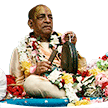Personal Benefits - an essential subject: Difference between revisions
(Created page with "Category:Essential Subjects <!----------------------- edit below this line -----------------------> <!------------------------ begin introduction text below --------------...") |
(Vanibot #0041: Moves Choose Another box to the end) |
||
| Line 2: | Line 2: | ||
<!----------------------- edit below this line -----------------------> | <!----------------------- edit below this line -----------------------> | ||
<!------------------------ begin introduction text below ------------------------> | <!------------------------ begin introduction text below ------------------------> | ||
The one is accepting the result for his personal benefit, and one is creating good result but not for his personal benefit, but Kṛṣṇa's service. This is the definition of sannyāsa. Anāsakta..., anāśritaḥ karma-phalaṁ kāryam: he is doing as my duty. I am Kṛṣṇa's servant, I have to do it. If I do not do it, then it is my misbehavior. Anāsakta, anāśritaḥ karma-phalaṁ kāryaṁ karma ka..., sa sannyāsī ca yogī ca. Such person is yogī, such person is sannyāsī, na niragnir na cākriyaḥ. Not that artificially I have taken the dress of a sannyāsī and talking nonsense. He is not sannyāsī. Sannyāsa means one who has completely devoted his life for Kṛṣṇa. He is sannyāsī, sa sannyāsī, and he is yogī. | |||
Srila Prabhupada's books, lectures, conversations and letters offer a comprehensive presentation of this essential subject as seen in the Vaniquotes '''[[Vaniquotes:Category:Personal Benefit|Personal Benefits]]''' category. An introduction from his books is given below in the following | Srila Prabhupada's books, lectures, conversations and letters offer a comprehensive presentation of this essential subject as seen in the Vaniquotes '''[[Vaniquotes:Category:Personal Benefit|Personal Benefits]]''' category. An introduction from his books is given below in the following 8 quotes. | ||
<!-------- end introduction text and don't touch next three lines ---------> | <!-------- end introduction text and don't touch next three lines ---------> | ||
---- | ---- | ||
== Quotes from Srila Prabhupada's books == | == Quotes from Srila Prabhupada's books == | ||
<!----------------- edit quote boxes below this line -----------------> | <!----------------- edit quote boxes below this line -----------------> | ||
{{VaniQuotebox| | {{VaniQuotebox|A pure devotee, however, knows that since the Lord is omnipresent and omniscient, there is no need to offer prayers or worship Him for one's personal benefit|A neophyte devotee, of course, approaches the Supreme Lord for relief from distress or poverty, or for speculative knowledge of the Lord. Bhagavad-gītā (7.16) mentions four kinds of pious men who begin devotional service to the Lord—one who is distressed (ārta), one in need of money (arthārthī), one who is inquisitive (jijñāsu) and one who is searching for the Absolute Truth (jñānī). A pure devotee, however, knows that since the Lord is omnipresent and omniscient, there is no need to offer prayers or worship Him for one's personal benefit. A pure devotee always engages in the service of the Lord without demanding anything. '''(Śrīmad-Bhāgavatam 6.9.42)'''}} | ||
{{VaniQuotebox| | {{VaniQuotebox|A pure devotee wants simply to engage in the service of the Lord and does not consider his own personal benefit|The devotees can achieve not only liberation but any success in the realm of religiosity, economic development or sense gratification up to the standard of the demigods in the heavenly planets. But such a pure devotee as Uddhava refuses to accept all such facilities. A pure devotee wants simply to engage in the service of the Lord and does not consider his own personal benefit. '''(Śrīmad-Bhāgavatam 3.4.15)'''}} | ||
{{VaniQuotebox| | {{VaniQuotebox|Almost all the sages go to the Himalayas for their personal benefit, but Prahlada Maharaja said that he did not want liberation alone. He decided to wait until he was able to deliver all the fallen souls of the world| If they do not do something to relieve the distressed condition of human society, it is said that due to such neglect their spiritual knowledge diminishes. Almost all the sages go to the Himalayas for their personal benefit, but Prahlāda Mahārāja said that he did not want liberation alone. He decided to wait until he was able to deliver all the fallen souls of the world. '''(Śrīmad-Bhāgavatam 4.14.41)'''}} | ||
{{VaniQuotebox| | {{VaniQuotebox|Both the karma-nisthas and the jnanis are interested in personal benefit. The karmis are directly interested in personal benefit within the material world, and the jnanis are interested in merging into the existence of the Supreme|In either case, both the karma-niṣṭhas and the jñānīs are interested in personal benefit. The karmīs are directly interested in personal benefit within the material world, and the jñānīs are interested in merging into the existence of the Supreme. The jñānīs maintain that fruitive activity is imperfect. For them, perfection is the cessation of work and the merging into the supreme existence. '''(Caitanya-caritāmṛta, Madhya-līlā 19.147)'''}} | ||
{{VaniQuotebox| | {{VaniQuotebox|Demons can do anything for their personal benefit, not considering what is pious or vicious|Devakī wanted to save her brother from this terrible, sinful act. Therefore she told him, "Don't be so atrocious as to kill a female child. Let there be all good fortune for you." Demons can do anything for their personal benefit, not considering what is pious or vicious. But Devakī, on the contrary, although safe because she had already given birth to her own son, Kṛṣṇa, was anxious to save the daughter of someone else. This was natural for her. '''(Śrīmad-Bhāgavatam 10.4.4)'''}} | ||
{{VaniQuotebox| | {{VaniQuotebox|If a so-called spiritual master accepts a disciple for his personal benefit or for material gain, the relationship between the spiritual master and the disciple turns into a material affair, and the spiritual master becomes like a smarta-guru| If a so-called spiritual master accepts a disciple for his personal benefit or for material gain, the relationship between the spiritual master and the disciple turns into a material affair, and the spiritual master becomes like a smārta-guru. There are many caste gosvāmīs who professionally create some disciples who do not care for them or their instructions. Such spiritual masters are satisfied simply to get some material benefits from their disciples. Such a relationship is condemned by Śrīla Bhaktisiddhānta Sarasvatī Ṭhākura, who calls such spiritual masters and disciples a society of cheaters and cheated. They are also called bāulas or prākṛta-sahajiyās. '''(Caitanya-caritāmṛta, Madhya-līlā 24.330)'''}} | ||
{{VaniQuotebox| | {{VaniQuotebox|A brahmana may receive much opulence from his disciples, he should not utilize the rewards of his priesthood for his personal benefit; he must use them for the service of the Supreme Personality of Godhead|He said that since he was very happy in his householder life, taking rice given by his disciples and cooking vegetables of tamarind leaves, there was no question of taking help from the Zamindar. The conclusion is that although a brāhmaṇa may receive much opulence from his disciples, he should not utilize the rewards of his priesthood for his personal benefit; he must use them for the service of the Supreme Personality of Godhead. '''(Śrīmad-Bhāgavatam 6.7.36)'''}} | ||
{{VaniQuotebox| | {{VaniQuotebox|A devotee of the Lord always looks to the welfare of all living entities, and in this way he is factually the friend of everyone. He is the best yogi because he does not desire perfection in yoga for his personal benefit, but tries for others also|A devotee of the Lord always looks to the welfare of all living entities, and in this way he is factually the friend of everyone. He is the best yogī because he does not desire perfection in yoga for his personal benefit, but tries for others also. He does not envy his fellow living entities. Here is a contrast between a pure devotee of the Lord and a yogī interested only in his personal elevation. '''(Bhagavad-gītā 6.32)'''}} | ||
<!----------------- edit quote boxes above this line -----------------> | <!----------------- edit quote boxes above this line -----------------> | ||
| Line 31: | Line 31: | ||
'''Personal Benefits - [[Vaniquotes:Category:Personal Benefit|explore more within this category]]'''. | '''Personal Benefits - [[Vaniquotes:Category:Personal Benefit|explore more within this category]]'''. | ||
{{EsentialSubjectTotal}} | {{EsentialSubjectTotal}} | ||
<div style="float:left;"> | |||
{{EssentialSubjectnav}} | |||
</div> | |||
__NOTOC__ | __NOTOC__ | ||
__NOEDITSECTION__ | __NOEDITSECTION__ | ||
Latest revision as of 17:08, 22 November 2020
The one is accepting the result for his personal benefit, and one is creating good result but not for his personal benefit, but Kṛṣṇa's service. This is the definition of sannyāsa. Anāsakta..., anāśritaḥ karma-phalaṁ kāryam: he is doing as my duty. I am Kṛṣṇa's servant, I have to do it. If I do not do it, then it is my misbehavior. Anāsakta, anāśritaḥ karma-phalaṁ kāryaṁ karma ka..., sa sannyāsī ca yogī ca. Such person is yogī, such person is sannyāsī, na niragnir na cākriyaḥ. Not that artificially I have taken the dress of a sannyāsī and talking nonsense. He is not sannyāsī. Sannyāsa means one who has completely devoted his life for Kṛṣṇa. He is sannyāsī, sa sannyāsī, and he is yogī.
Srila Prabhupada's books, lectures, conversations and letters offer a comprehensive presentation of this essential subject as seen in the Vaniquotes Personal Benefits category. An introduction from his books is given below in the following 8 quotes.
Quotes from Srila Prabhupada's books
Personal Benefits - explore more within this category.
Vanipedia has now over 903 introductory articles compiled from Srila Prabhupada's books under the series titled Essential Subjects. All these articles can be seen in the Table of Content on the right side of this article and also here in this Umbrella Category. Browse through them to relish the breadth and depth of Srila Prabhupada's teachings - There is a subject for everyone.






